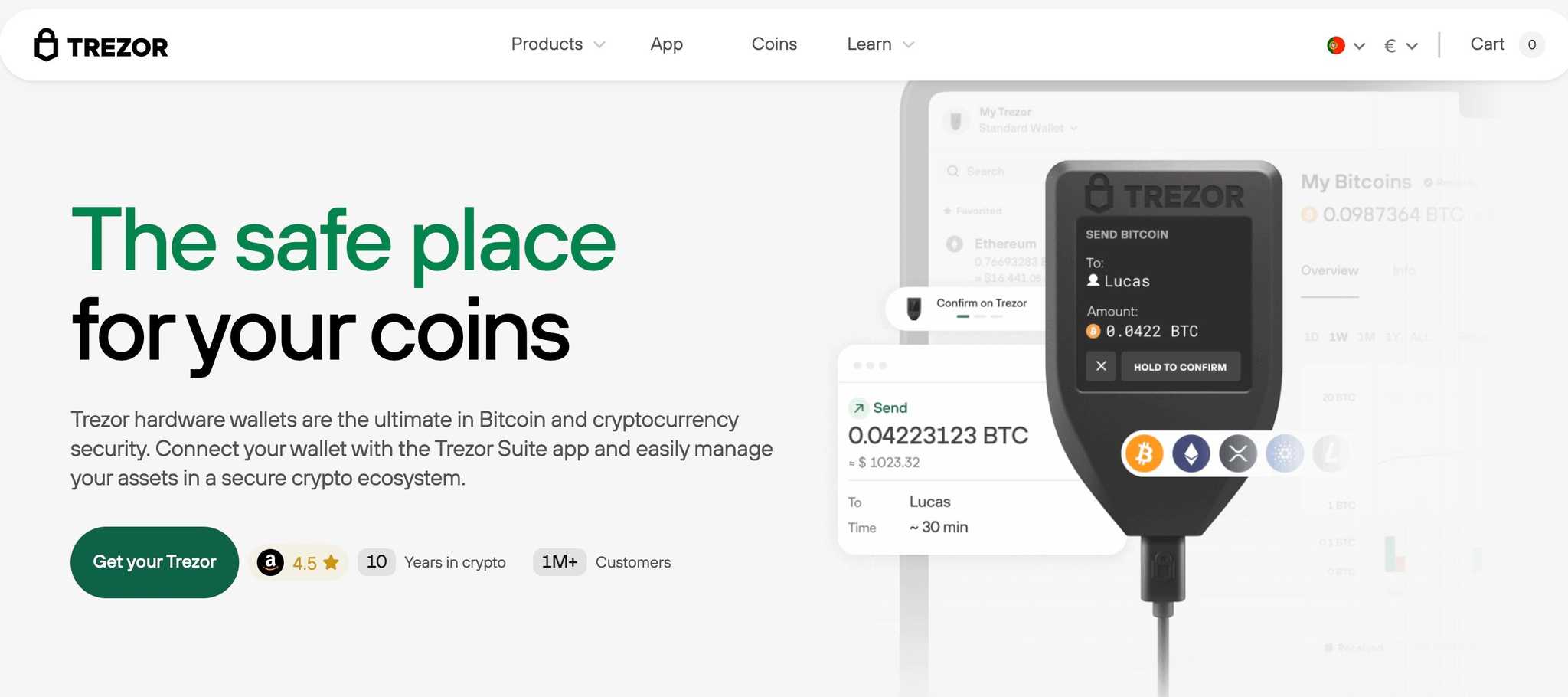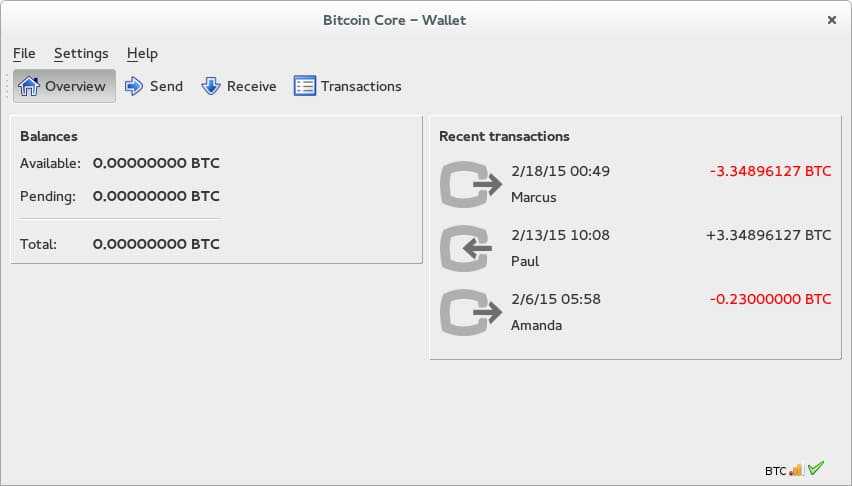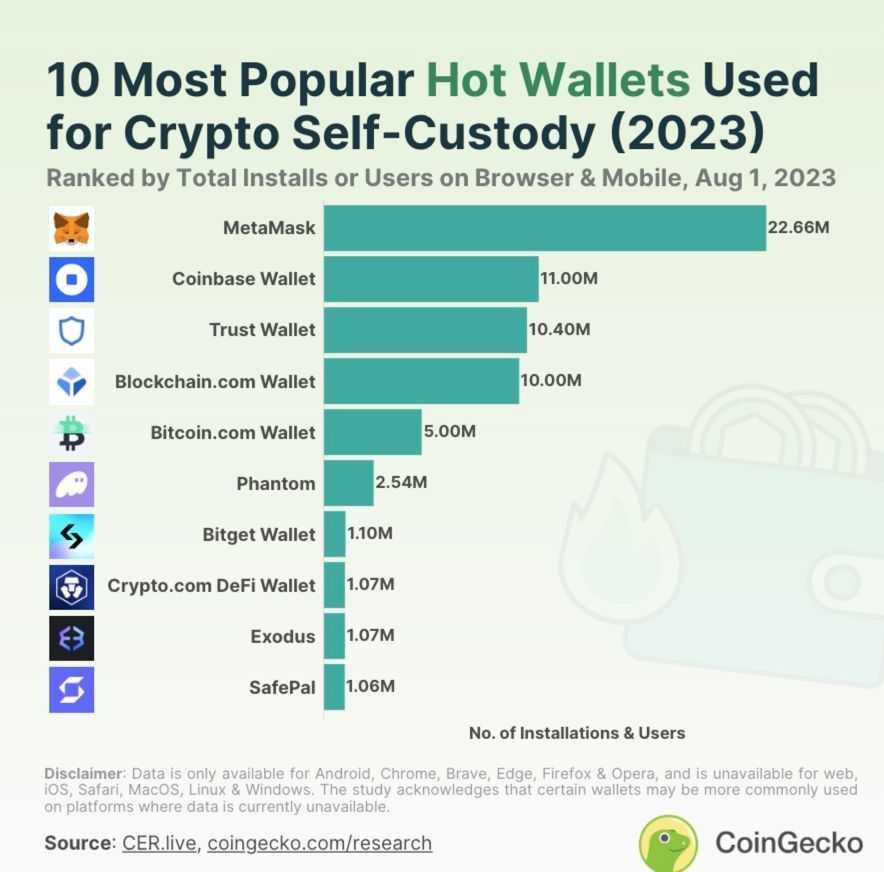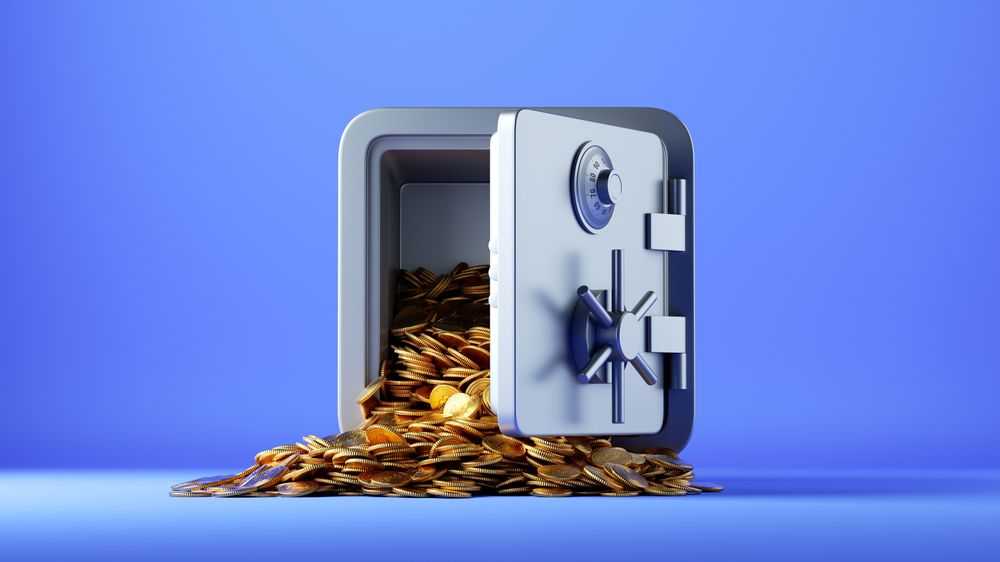Everyone knows that security is paramount when it comes to the storage and safekeeping of our assets. There is a reason why people choose bank vaults over keeping cash under the bed, why we password-protect everything, and why we don't store gold bars on our window sills or keep stacks of cash visible in our cars… I think you get the point.
Crypto is no different. Just because it is digital, does not mean we don't have to take similar steps as we do with tangible assets when it comes to securing our digital assets.
While crypto coins in themselves are secured by the underlying blockchain networks, the coins we hold are only as secure as the wallets we store them in.
There are a number of different crypto wallet types that are currently available, which differ according to the needs of the user, security, mobility and cost. Given this selection, it is essential that you know the differences between them, the pros and cons of crypto wallets, and how to choose the best wallet for your needs.
In this Types of Crypto Wallets article, we will explore 5 types of cryptocurrency wallets, analyze the benefits and weaknesses of each and cover the best options for your personal preferences. We will also pepper in some crypto wallet security tips and link to additional resources to ensure your crypto security game is on point.
Which Crypto Wallet is Best?
There are several types of wallets that can be used to store your cryptocurrencies. These are hardware wallets and paper wallets (cold storage) and desktop, mobile, and web, (hot wallets). Each has its own strengths and weaknesses, and determining which to use will depend on what use you have in mind for the wallet and the cryptocurrency that will be stored there. Consider the following questions:
- Will the wallet be used for everyday transactions such as trading, DeFi interaction, or spending, or simply for long-term holding of the cryptocurrency as an investment?
- Do you need to store just one cryptocurrency or several cryptocurrencies?
- Do you intend to only access the crypto from home, or use it while out and about?
The answers to these questions and others will determine which type of crypto wallet will be most suitable for you. Note that all the wallet types and wallets mentioned in this article are non-custodial wallets, meaning the user has full control over their private keys and funds. Self-sovereignty and the financial freedom of being able to transact freely without an authoritarian intermediary is a key cornerstone of cryptocurrency, hence our decision to only cover self-custodial wallets in this article.
Now, let’s look more closely at each type of crypto wallet.
1. Hardware Wallets
A hardware crypto wallet is a type of cryptocurrency wallet that stores the user's public and private keys on a physical device that can often look like a USB drive. Unlike other types of wallets, the private keys needed to access your cryptocurrencies are stored offline, keeping them inaccessible to hackers, viruses and potential online attack vectors.

Hardware wallets can be used to store many different cryptocurrencies, which makes them not only secure, but quite convenient. Using them is also fairly straightforward. Users plug them into an internet-connected device like their home PC, enter a security PIN and then send the cryptocurrency and confirm. Hardware wallets also include a physical confirmation on the device itself for added security as sort of a 2FA.
Hardware Wallet Pros & Cons
Some of the more popular hardware wallets are the ones made by Ledger and Trezor, or more sophisticated air-gapped wallets like those made by Ellipal and NGRAVE are also available.
We won't go into much more detail on hardware wallets in this article, but if you want to learn more you can check out:
Hardware wallets are often considered the safest way to store your digital assets. The biggest risks to crypto wallet security come in the form of hacks, phishing, malware, viruses, essentially, unauthorized access that is achievable through online web access. Unlike desktop, mobile, and browser extension wallets, hardware wallets do not store digital copies of your private keys on devices with online access, therefore, keeping them outside of the reach of online threats.
We explore the different types of threats to crypto security and cover best practices for crypto storage security in our comprehensive Crypto Safety Guide.
2. Desktop Crypto Wallets
Desktop wallets are a safe choice for storing cryptocurrency, but only if used on an offline computer or one that has not been infected with malware or viruses. Desktop wallets are among the most common type of crypto wallets, especially for old-school Proof of Work coin holders. Most coins will have their own core wallet version.

There are a couple of trade-offs with desktop wallets that have seen their popularity wane in recent years. Desktop computers have a higher chance of being infected with viruses and malware or succumbing to phishing scams than mobile devices or hardware wallets, and the user interface with desktop computers often leaves a lot to be desired.
In the image above, you can see that the UI looks more akin to a computer running Windows 95 vs some of the sleeker interfaces provided by the likes of Exodus wallet, which is one of the most popular desktop and mobile wallets.
However, If you install a desktop wallet on a computer that’s never been connected to the internet it essentially becomes a cold wallet and is one of the more secure means for storing your cryptocurrency.
Desktop Wallet Pros & Cons
Along with Exodus, you can check out some of the other leading desktop wallets in our Top Desktop Crypto Wallets article.
You’ll also find that most cryptocurrencies have their own native desktop wallet, which is often the most secure choice for that coin.
3. Mobile Crypto Wallets
A mobile crypto wallet is installed on a mobile device just like any other app. They make it convenient for spending crypto-funds on the go and many feature built-in Dapp and swap access from directly within the wallet.
Many leading wallets are available as desktop, mobile and browser extension wallets, while some are mobile only.

Of course, the added convenience of a mobile wallet means that you lose some functionality that core desktop wallets or browser extension wallets usually come with.
For example, you cannot really use your mobile phone resources to mine most of the popular Proof-of-Work coins, which is something that can be done in the core wallets of numerous mineable cryptocurrencies.
Other examples of limitations with mobile wallets are that there are very few blockchains where you can run a full node from a mobile and many DeFi applications cannot be utilized to their full potential from a mobile wallet.
Mobile Wallet Pros & Cons
Some popular mobile crypto wallets include Coinomi, Exodus, Mycelium, Trust Wallet, and the Coinbase mobile app.
4. Browser Extension Wallets
Now we get into the most commonly used type of wallet, favoured for their accessibility and utility for accessing the world of DApps and DeFi.
The undisputed king of all crypto wallets in terms of active users and installations is the MetaMask wallet. Browser extension wallets are lightweight, fast, and highly versatile wallets that live in your browser, and of course, are free to download.

MetaMask is essentially the doorway into DeFi but is not the only game in town. We recently covered the Top Polygon Wallets and were impressed with the Rabby Wallet, a newcomer in the space and MetaMask alternative that has a strong focus on security.
While MetaMask is the leader for Ethereum and EVM-compatible chains, you will need an alternative if you are going to venture outside the Ethereum ecosystem. Wallets such as Yoroi for Cardano and Phantom for Solana are the most popular web extension wallets for those networks.
These wallets are quite necessary if you are going to want to experience the full extent of the crypto and DeFi/Dapp ecosystem, but most crypto veterans agree that these are not the best places to store large amounts of funds for the long term.
Web extension wallets are often considered the most risky of all on this list as they have 24/7 online connectivity, are susceptible to malware and viruses that could infect the computer in which they operate on, and are most at risk of approving malicious transactions on phishing sites as they frequently interact with DApps and DeFi protocols that could be malicious.
Web extension wallets also do not have a very easy-to-use or friendly interface, can be quite confusing when trying to conduct complex transactions, and are often considered suitable for advanced crypto users.
Mobile wallets are often considered the most beginner friendly as most of us are comfortable with mobile phones and app use, with hardware wallets being next in line, a bit alien, but we can figure them out.
Getting into the world of web extension wallets and DeFi is something quite foreign and is a new and budding industry still going through growing pains, so if you are new to crypto, I would definitely recommend learning more about MetaMask and DeFi before jumping straight in.
Browser Extension Wallets Pros & Cons
5. Paper Wallets
Paper wallets are not talked about often and aren't very popular these days, but they are an easy and secure way to store your crypto. A paper wallet is nothing more than a physical copy of your public and private keys. You can create one by writing them down yourself on a piece of paper.
There are also paper wallet generators that can create a pair of keys and print them, along with a QR code. Using a paper wallet is straightforward. To add funds to the wallet a transfer is made to the public address of the paper wallet. The wallet can then be kept in a cold storage environment which keeps it out of the hands of hackers.

And to spend the funds in the paper wallet, you simply make a transfer from the paper wallet to another wallet using the private keys or by scanning the QR code.
Paper wallet pros & cons
One of the most popular paper wallet generators is WalletGenerator.net. It supports the creation of paper wallets for 197 different cryptocurrencies. If it doesn’t support a coin you can either create the paper wallet manually or Google for a wallet generator for that particular cryptocurrency.
I would recommend following this guide by 101 Blockchains if you are going to select a paper wallet as the cover important steps such as using your computer and printer in an offline environment when creating the wallet.
Crypto Wallet Security 101
Finding the best cryptocurrency wallet is one of the first steps when it comes to securing your digital assets. How you deal with your crypto and how you use your wallet is just as important. There are a number of things that you need to take into account for wallet security:
- Make Backups: When you are creating a crypto wallet, you will usually be given a collection of seed words that can be used to recover it. Ensure you keep a backup of these words safe and offline. There are countless stories of people who lost access to all their assets as they failed to make a backup. If your phone or hardware wallet breaks, or gets lost, perhaps your computer dies, that backup phrase will be the ONLY way to recover your crypto.
- Keep Your PC / Mobile Clean: If you store your crypto on a PC or mobile wallet then you need to make sure that you are not visiting dodgy websites, downloading suspicious files or installing malicious apps. There are risks such as malware that can operate undetected by anti-virus software and there have been multiple cases of apps available for download that mirror the official crypto app, only to drain user funds once they add their crypto to an app they thought was legitimate.
- Don't Flaunt It: Going around telling people how much crypto you hold in your wallets is not really the best idea as it may open you up to a number of threats including those of the physical form. There have numerous cases that have been reported of crypto investors facing the threat of violence if they did not hand over the keys to their crypto wallets. No one needs to know what you are Hodling!
We cover these best practices in more detail and dish out more essentials for crypto safety in our Crypto Safety Guide.
Mix Up Your Crypto Storage!
After reading all of that, you may be wondering which wallet is best for you. Pro tip here! The answer is probably that no single wallet is best for anyone. Many crypto veterans, including us here at the Coin Bureau, recommend using a mix of wallets for various reasons.

First of all, it is a great way to diversify your risk. If one wallet gets compromised, you don't want to risk losing all your funds. I don't know about you, but I worked hard for my Satoshis and don't to risk all my eggs in one basket.
Another reason to mix it up is, as you may have noticed, different wallets have different levels of risk, but taking on the extra level of risk may be necessary to utilize the crypto ecosystem. Many crypto users will follow a tiered approach, I find it helps to compare it to how we utilize banks in real life.
Just as I don't carry my life savings in my wallet, I am not going to expose all my crypto assets to a web browser wallet.
The majority of my funds sit in the bank, and the majority of my crypto stays in the most secure form of storage, a selection of hardware wallets. My preferred wallets are Trezor and NGRAVE.
I treat my mobile wallet like my physical wallet, only keeping what I need in there for the immediate future, and when needed, topping up my mobile wallet from my hardware wallet. My personal favourites for mobile wallets are Exodus and Trust Wallet.
Then when it comes to browser extension wallets, I only expose the minimal amount of funds needed for an amount I am comfortable with for things like Yield Farming and Liquidity providing. The wallets being MetaMask for Ethereum and layer 2s/sidechains, Yoroi for Cardano, and Fantom for Solana. As I consider this the highest risk, I subject the least amount of capital.
Types of Crypto Wallets: Conclusion
Cryptocurrency wallets play a significant role as they are crucial for safeguarding your funds securely. They also serve as the primary means for most individuals to perform cryptocurrency transactions, including sending, receiving, and storing digital assets. Your choice of wallet type will be determined by your specific use case for cryptocurrencies.
Many individuals discover the need for multiple wallet types. For instance, having a hardware wallet to secure substantial cryptocurrency holdings, a desktop wallet for smaller amounts used in trading, a mobile wallet for day-to-day transactions, and a browser extension wallet for convenient Dapp and DeFi access.
Each variety of cryptocurrency wallet has its own advantages and drawbacks, and selecting the most suitable one hinges on your intended usage. Regardless of the wallet you opt for, it's essential to adhere to basic cryptocurrency wallet security practices.
Frequently Asked Questions
Cryptocurrency wallets are digital tools that allow individuals to securely store, send, and receive their cryptocurrencies. They play a crucial role in safeguarding your funds from hacking and unauthorized access, as well as provide the benefit of taking self-custody over your funds.
There are several types of cryptocurrency wallets, including hardware wallets, software wallets (such as desktop, mobile, and web wallets), and paper wallets. Hardware wallets are physical devices that provide offline storage, while software wallets are digital applications that can be accessed via different devices. Paper wallets involve printing out your private keys and addresses on paper.
There are two types of wallets: hardware and software. Hardware wallets are considered the safest option since they store your private keys offline, which makes them less vulnerable to online threats. On the other hand, software wallets are connected to the internet and come in three types: desktop, mobile and web wallets. Each of them offers different levels of convenience and security.
If you're new to cryptocurrency, you might want to try using software wallets such as a mobile wallet like Exodus or Trust Wallet. These wallets are easy to use, readily available, and suitable for managing smaller amounts of cryptocurrency. They offer a good balance between convenience and security. As you become more experienced with cryptocurrency, you can consider looking into other wallet options like hardware wallets, which provide even greater security.
Paper wallets used to be popular as a way to store cryptocurrency, but they are now less common due to their susceptibility to physical damage, loss, and human error. They are also less convenient as they cannot interface with the plethora of DApps available.
Disclaimer: These are the writer’s opinions and should not be considered investment advice. Readers should do their own research.


